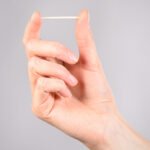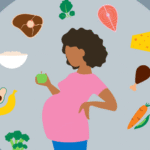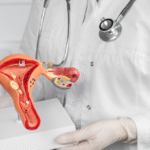Now Reading: Best Foods to Eat When Trying to Conceive
-
01
Best Foods to Eat When Trying to Conceive
Best Foods to Eat When Trying to Conceive

Trying to conceive can be both exciting and challenging. Nutrition plays a crucial role in boosting fertility.
Understanding which foods can help enhance your chances is vital. A balanced diet supports reproductive health. Foods rich in vitamins and minerals can improve fertility. These nutrients help regulate hormones and support overall health. A well-rounded diet includes fruits, vegetables, lean proteins, and whole grains.
Healthy fats and antioxidants also play a part in fertility. Consuming the right nutrients prepares your body for pregnancy. This can make the journey smoother and more successful. Eating well can benefit both partners, enhancing their reproductive health. This introduction sets the stage for exploring the best foods to aid conception. Let’s delve into how these foods can support your journey to parenthood.
Nutrient-rich Diet
Trying to conceive is a special journey. A nutrient-rich diet supports fertility health. Choosing the right foods can boost your chances of success. Focus on eating fresh, whole foods. These offer essential nutrients that aid in conception. You can also enhance your overall well-being. Let’s explore the importance of nutrients and key vitamins and minerals.
Importance Of Nutrients
Nutrients play a crucial role in fertility. They help create a healthy environment for pregnancy. Proteins, fats, and carbohydrates provide energy and support cell function. Including a variety of foods ensures a balanced intake. Leafy greens, whole grains, and lean proteins are great choices. These foods help regulate hormones and promote egg health.
Essential Vitamins And Minerals
Vitamins and minerals are vital for reproductive health. Folic acid supports fetal development. It reduces the risk of birth defects. Leafy vegetables and citrus fruits are rich in folic acid. Iron is crucial for oxygen transport in the body. It helps prevent anemia during pregnancy. Red meat and spinach are excellent sources of iron. Zinc boosts immunity and aids cell growth. Nuts and seeds provide a good amount of zinc. Vitamin D supports hormone balance. It can be obtained from sunlight and fortified foods.
Fertility-boosting Foods
Trying to conceive can be an emotional journey. Nutrition plays a crucial role in fertility. Certain foods can boost fertility and improve reproductive health. Eating the right nutrients can support your body in many ways. This section highlights some of the best fertility-boosting foods.
Leafy Greens
Leafy greens are packed with essential vitamins and minerals. Spinach and kale are rich in folate, which helps with cell division. Folate is important for healthy eggs and reducing birth defects. These greens also contain iron, which is vital for reproductive health. Iron supports ovulation and overall fertility. Eating leafy greens can improve your chances of conceiving.
Whole Grains
Whole grains are another excellent choice for boosting fertility. They provide fiber, which helps regulate blood sugar levels. Balanced blood sugar is crucial for hormone balance. Whole grains like oats and brown rice contain essential nutrients. These nutrients support healthy ovulation and egg quality. A diet rich in whole grains can enhance reproductive health.
Healthy Protein Sources
Trying to conceive can be an exciting journey. Nutrition plays a key role in fertility. Proteins are vital. They support hormone production and cell repair. Choose healthy protein sources to boost your chances. Let’s explore some excellent options.
Lean Meats
Lean meats provide essential amino acids. These help in building and repairing tissues. Chicken and turkey are great choices. They are low in fat and high in protein. Red meat, like beef, should be eaten in moderation. Opt for cuts with less fat. Iron in red meat supports ovulation. Always prefer organic or grass-fed options. They contain fewer hormones and antibiotics.
Plant-based Proteins
Plant-based proteins are excellent for fertility. They are rich in fiber and nutrients. Lentils and beans are great options. They offer protein and folate. Folate is important for DNA synthesis. Quinoa is another powerful option. It provides all nine essential amino acids. Nuts and seeds are nutrient-dense. They are rich in omega-3 fatty acids. These fats support reproductive health. Include chia seeds, flaxseeds, and almonds in your diet.
Omega-3 Fatty Acids
Fish like salmon and sardines, rich in Omega-3 fatty acids, support fertility. Walnuts and flaxseeds also provide these essential nutrients. Including these foods can enhance reproductive health.
Omega-3 fatty acids play a crucial role in enhancing fertility and supporting overall reproductive health. They are essential nutrients that your body can’t produce on its own. Incorporating these healthy fats into your diet can help create a more fertile environment, potentially boosting your chances of conceiving.
If you’re hoping to expand your family, you might wonder where to find these nutrients. Let’s explore some of the best sources of omega-3s.
Fish And Seafood
Fish and seafood are among the richest sources of omega-3 fatty acids. Salmon, mackerel, and sardines are particularly high in these beneficial fats.
Eating fish at least twice a week is a great way to add omega-3s to your diet. However, be mindful of mercury levels in certain fish like tuna and swordfish.
Have you ever noticed how Mediterranean diets, rich in seafood, are linked to higher fertility rates? It might be worth considering this dietary approach on your fertility journey.
Nuts And Seeds
Nuts and seeds offer a plant-based way to get your omega-3s. Walnuts are a standout, providing a hearty dose in just a small handful. Flaxseeds and chia seeds are also excellent sources.
These options are versatile, fitting easily into various meals. Sprinkle seeds over your morning yogurt or add a handful of walnuts to your salad for a crunchy texture.
Next time you prepare a snack, consider whether it contributes to your fertility goals. Are your choices supporting your journey to conception? Simple swaps can make a big difference.
Antioxidant-rich Choices
Antioxidants play a crucial role in boosting fertility. They protect the body from harmful free radicals. Consuming antioxidant-rich foods can improve reproductive health. These foods help maintain healthy cells and tissues. Including them in your diet can support conception efforts. Explore vibrant berries and colorful vegetables for a fertility-friendly diet.
Berries And Fruits
Berries are packed with antioxidants. Blueberries, strawberries, and raspberries are excellent choices. They provide vitamins C and E, which support healthy eggs. Oranges and kiwis are also rich in antioxidants. These fruits improve blood flow to reproductive organs. They offer a sweet and tangy addition to your meals. Enjoy them fresh, in smoothies, or as a snack. They are easy to include in your daily diet.
Vegetables
Vegetables are essential for a fertility-focused diet. Spinach and kale are rich in vitamins and antioxidants. They support the body’s reproductive functions. Carrots and sweet potatoes contain beta-carotene. This nutrient is vital for hormone regulation. Broccoli and Brussels sprouts are great sources of folate. Folate is crucial for healthy fetal development. Incorporate these vegetables into your meals daily. Steamed, roasted, or in salads, they are versatile.
Hydration And Fluids
Staying hydrated is crucial when trying to conceive. Foods like cucumbers, watermelon, and oranges provide essential fluids. These choices support overall health and fertility.
When you’re trying to conceive, hydration and fluids play a crucial role in supporting your body’s needs. Adequate hydration helps in maintaining the right balance of hormones and promotes healthy cervical mucus, which is essential for conception. It’s not just about drinking enough; it’s about choosing the right fluids to support your fertility journey.
Water Intake
Water is the most fundamental component of your hydration strategy. Drinking at least 8 to 10 glasses of water a day can improve your overall health and fertility. It ensures that your blood and cells are well-hydrated, providing a conducive environment for conception.
You might wonder if you’re drinking enough. A simple way to check is by looking at the color of your urine. Clear or pale yellow indicates you’re well-hydrated. Make it a habit to carry a reusable water bottle to remind yourself to drink throughout the day.
Herbal Teas
Herbal teas can be a delightful addition to your hydration routine. They offer a variety of fertility-boosting benefits without the caffeine. For example, red raspberry leaf tea is known for its ability to strengthen the uterine lining, while nettle tea is rich in minerals essential for reproductive health.
Experiment with different blends to find what you enjoy most. A warm cup of herbal tea can be a comforting ritual, especially when shared with a partner. However, always consult with a healthcare provider to ensure the teas you choose are safe and beneficial for your situation.
Could enhancing your hydration with these simple yet effective methods make a difference in your fertility journey? Your next sip might just be a step toward your future family.
Avoiding Harmful Foods
Choosing the right foods can boost your chances of conceiving. It’s vital to avoid foods that could harm your fertility. Some foods may interfere with your reproductive health. They may impact your body’s ability to conceive. Knowing what to avoid can make a significant difference.
Processed Foods
Processed foods often contain unhealthy additives. These can include preservatives and artificial flavors. They might disrupt your body’s natural balance. Processed foods are usually high in trans fats and sodium. These can negatively affect your fertility. Eating fresh and whole foods is better for your health.
Sugary Drinks
Sugary drinks can harm your chances of conceiving. High sugar levels can lead to insulin resistance. This can affect your reproductive hormones. Soft drinks and energy drinks often have high sugar content. These drinks can lead to weight gain and hormonal imbalance. Opt for water or herbal teas to stay hydrated.
Lifestyle And Dietary Habits
When you’re trying to conceive, making thoughtful lifestyle and dietary choices is crucial. Your daily habits can significantly impact your fertility and overall well-being. By adopting mindful eating practices and strategic meal planning, you can create a supportive environment for conception. Let’s delve into actionable tips that can help you make the most out of your dietary habits.
Meal Planning Tips
Planning your meals can be a game-changer. Start by scheduling weekly menus with a variety of nutrient-rich foods. Include plenty of fruits, vegetables, lean proteins, and whole grains.
Keep it simple yet diverse. Preparing meals ahead saves time and ensures you’re eating balanced, wholesome food. You might even find that cooking becomes a joyful ritual. If you struggle with consistency, consider using meal planning apps or recipes tailored for fertility.
What can you add to your meal plan today to boost your chances of conceiving?
Mindful Eating
Mindful eating is all about being present during meals. Focus on the flavors, textures, and aromas of your food. Savor each bite slowly without distractions like TV or phones.
This practice not only enhances enjoyment but also aids digestion and absorption of nutrients. You may notice that being mindful helps you listen to your body’s hunger cues better.
Challenge yourself to eat one meal a day mindfully and observe how it changes your eating habits and mood.
Incorporating these lifestyle and dietary habits can make a positive impact on your journey to conception. You are empowered to make choices that nourish both your body and spirit. What’s your next step in creating a fertility-friendly lifestyle?
Frequently Asked Questions
What Are The Best Foods To Eat When Trying To Get Pregnant?
Eat leafy greens, lean proteins, whole grains, and berries. Consume foods rich in folic acid, zinc, and iron. Incorporate healthy fats like avocado and nuts. Stay hydrated and limit caffeine and alcohol. Prioritize a balanced diet for optimal fertility.
What Foods Increase The Chances Of Getting Pregnant?
Consume leafy greens, whole grains, and lean proteins to boost fertility. Include healthy fats like avocados and nuts. Add dairy, berries, and citrus fruits for essential vitamins. Ensure adequate intake of folic acid and iron. Stay hydrated and maintain a balanced diet for optimal reproductive health.
What Food To Avoid While Trying To Conceive?
Avoid processed meats, high-mercury fish, trans fats, excessive caffeine, and alcohol. Choose whole foods for better fertility.
How Can I Boost My Fertility To Get Pregnant?
Eat a balanced diet, exercise regularly, and maintain a healthy weight. Reduce stress and quit smoking. Consult a healthcare provider for prenatal vitamins and advice. Limit caffeine and alcohol consumption. Track ovulation cycles for optimal timing.
Conclusion
Eating the right foods boosts fertility naturally. Focus on fresh fruits, vegetables, and whole grains. Add lean proteins like chicken and fish to your meals. Healthy fats from nuts and avocados also help. Stay hydrated with plenty of water. Limit processed foods and sugar for best results.
Balanced nutrition supports overall health and fertility. Every meal choice makes a difference. Trust your body and nourish it well. A healthy diet is a step towards growing your family. Prioritize these foods and enjoy the journey to parenthood.


















